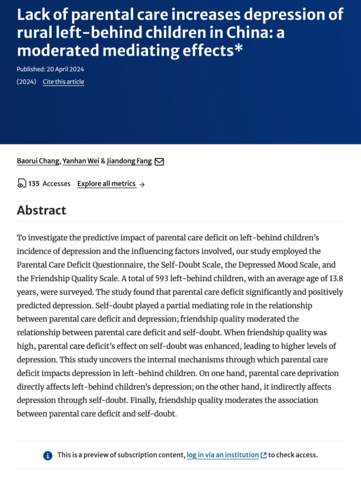To investigate the predictive impact of parental care deficit on left-behind children’s incidence of depression and the influencing factors involved, this study employed the Parental Care Deficit Questionnaire, the Self-Doubt Scale, the Depressed Mood Scale, and the Friendship Quality Scale. A total of 593 left-behind children, with an average age of 13.8 years, were surveyed.
The study found that parental care deficit significantly and positively predicted depression. Self-doubt played a partial mediating role in the relationship between parental care deficit and depression; friendship quality moderated the relationship between parental care deficit and self-doubt.
When friendship quality was high, parental care deficit’s effect on self-doubt was enhanced, leading to higher levels of depression. This study uncovers the internal mechanisms through which parental care deficit impacts depression in left-behind children.
On one hand, parental care deprivation directly affects left-behind children’s depression; on the other hand, it indirectly affects depression through self-doubt. Finally, friendship quality moderates the association between parental care deficit and self-doubt.

